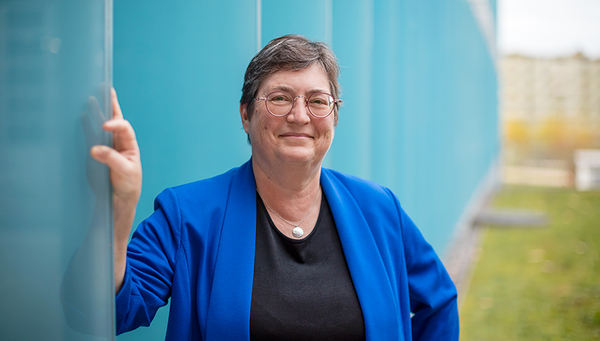Archive detail
“I find the sound of water to be very calming”
March 22, 2021 |
What does water mean to you personally?
For those of us in industrialized countries, access to safe water is such a normal part of everyday life that it is easy to take it for granted. Personally, I find the sound of water – especially a rushing waterfall or rolling ocean – to be very calming. Even the sound of water in the kitchen sink when I wash dishes reminds of its importance and value.
And what does water mean to you as director of Eawag?
Water is the central focus of Eawag’s research, teaching and expert consulting. Eawag plays a leading role in developing the scientific basis for the sustainable management of water supply, water resources and aquatic ecosystems nationally and internationally.
From an aquatic research perspective, what are the greatest challenges regarding water in Switzerland?
In Switzerland, we have built up a system of infrastructure and water management strategies that have served us well in many regards but have not been without costs. One of those costs has been loss of biodiversity. The greatest challenge is to accept that past practices and policies may not be well suited to the future.
And the current and future challenges regarding worldwide?
Unlike Switzerland, many countries are faced with serious water insecurity due, in part, to vastly inadequate infrastructure. The United Nations recognized the human right to water and sanitation in 2010, but an estimated 790 million people lack access to safe drinking water and 1.8 billion people lack access to adequate sanitation. Rapid industrialization in the absence of effective regulation has also led to the pollution of waterbodies and waterways in emerging economies.
How can Eawag value water properly and help to protect it effectively?
Water is an essential good. We cannot live without water and we depend on ecosystem services that the water environment and hydrologic cycle provide. By providing information on the impacts of our activities on the water environment, Eawag can encourage people and societies to protect this vital resource.
What can Eawag contribute to the achievement of the Sustainable Development Goal 6: Ensure availability and sustainable management of water and sanitation for all.
Eawag, especially our Department of Sanitation, Water and Solid Waste for Development (Sandec), has contributed over decades to improvements in the water, sanitation and hygiene (WASH) sector. This work is described in the newly released report “A Sanitation Journey – Principles, Approaches & Tools for Urban Sanitation”. Eawag’s research also contributes to improving water quality by developing new methods for water quality assessment and technologies to establish a circular economy for water.
Eawag is one of the world's leading aquatic research institutes. How does Eawag make its knowledge available to other countries, to people in the field, to politicians?
Scientific publications are Eawag’s principal output. They are useful mainly to people in the field but also provide the basis for more accessible outputs, such as factsheets, videos, blogs, press releases, and articles in magazines published by professional associations. Of course, it is excellent when our work is picked up by media outlets since this gives Eawag much wider exposure. In addition, we offer together with EPFL the MOOC series “Sanitation, Water and Solid Waste for Development”, an open-access eLearning programme. This has enabled us to reach a global audience of nearly 160,000 learners to date.
Cover picture: Eawag

